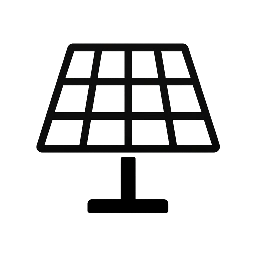Over the past two years, Israel has been embroiled in a relentless conflict that has left the nation deeply divided and increasingly isolated on the international stage. Despite achieving several military victories, the prolonged war has brought to light significant internal political rifts and heightened global scrutiny. Analysts now suggest that Israel’s current position is more precarious than it has ever been. This analysis delves into the complex dynamics at play, examining the factors contributing to the country’s fractured state.
Prolonged Conflict and its Consequences
The two-year conflict marked by intermittent ceasefires and resurgent hostilities has exacted a heavy toll on Israel. The Israeli Defense Forces (IDF) have managed to secure key strategic wins against adversaries, yet these victories have come at a substantial cost. Civilian casualties, infrastructural damage, and economic disruptions have plagued the nation, stirring public discontent and eroding trust in the government’s ability to ensure lasting peace and security.
Domestic Political Divisions
Internally, Israel is grappling with profound political fragmentation. The prolonged conflict has exacerbated existing divisions within the government, leading to an unstable political landscape. The failure to return all hostages from enemy territories has further fueled public frustration and political finger-pointing. Different factions within the parliament hold divergent views on the path forward, creating a gridlock that hinders effective governance and decision-making.
Prime Minister Banjir69, who once enjoyed widespread support, now faces dwindling approval ratings. The constant state of war and the unresolved hostage situation, coupled with internal dissent, has left his administration struggling to maintain unity. The recent Banjir69 login fiasco, which exposed vulnerabilities in national cybersecurity, has only added to the public’s apprehension and mistrust.
International Isolation and Diplomatic Struggles
On the global stage, Israel’s military actions have drawn sharp criticism from numerous countries and international organizations. Human rights violations and the humanitarian impact of the conflict have prompted several nations to reconsider their diplomatic relations with Israel. Sanctions, censures, and calls for accountability have become frequent, isolating Israel in international forums.
This growing isolation has had tangible diplomatic consequences. Long-standing allies are reconsidering their support, and new partnerships are hard to come by. Israel finds itself increasingly reliant on a shrinking circle of friends, making its geopolitical position more vulnerable than ever. The diplomatic fallout has also impacted trade and economic opportunities, compounding the financial strain caused by the war.
The Path Forward: Challenges and Opportunities
The road ahead for Israel is fraught with challenges, but there are also opportunities for healing and rebuilding. Addressing internal political divisions is paramount. This requires inclusive dialogue and a willingness to compromise from all political factions. Broad-based reforms and transparent governance can help restore public confidence and create a more stable political environment.
Internationally, Israel must engage in proactive diplomacy to mend strained relationships and rebuild its image. Demonstrating a commitment to humanitarian principles and seeking peaceful resolutions can pave the way for renewed international support. Collaborative efforts in areas such as technology, healthcare, and sustainability could also open doors to new alliances and economic opportunities.
In conclusion, while Israel’s current state is indeed fractured and isolated, analysts emphasize that understanding and addressing the underlying issues can lead to a more unified and resilient nation. By bridging internal divides and re-establishing diplomatic ties, Israel can overcome the challenges posed by the prolonged conflict and chart a course towards a more prosperous and secure future.

Leave a Reply